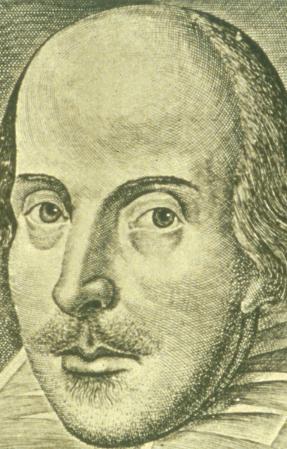 The
Droeshout Engraving
The
Droeshout EngravingShakespeare - En 255 (Web)
Dr. Richard Regan
Summer 2006
Email: rjregan@mail.fairfield.edu
Texts: Signet Classic editions of the plays listed below. These are wonderfully handy editions with clear notes, good introductions, bibliographies, and excellent short articles on the plays. They are available in the Fairfield U. bookstore. To order online go to borders.com and search for "Signet Classic Hamlet," or whatever title you want. I'll ask you to include references to some of the critical articles as you write your papers on each play.
Students with documented learning disabilities, please see me. Alternative methods of testing and evaluation are available.
Modules - The course is arranged in eight modules, one for each play. Before the course begins, let's practice exchanging documents written in Microsoft Word. I'll send you an email with a suggestion for writing, and you can attach your reply to an email. Word has a feature called Track Changes which we can use to write comments on papers (in color). Click here to download a document that contains some suggestions for writing in Word and for emailing papers as attachments.
| The Taming of the Shrew | June 5 |
| Richard III | June 12 |
| A Midsummer Night's Dream | June 19 |
| Henry IV, Part One | June 26 |
| Twelfth Night | July 3 |
| Hamlet | July 10 |
| King Lear | July 17 |
| The Winter's Tale | July 24 |
As you can see, we have about a week to work on each play.
Evaluations and grades: The main work of the course will be done through papers of about five (5) pages written on each play. Topics will be developed as we go. The papers should be original, but I would like to see some reference to the articles in the Signet editions and to the web sites I provide. Papers can be rewritten in response to my comments, and the rewrite grade will replace the original one.
We will also use group emails (sent Reply All) to have daily discussions, Monday through Friday. I will send an email each day with a prompting question or topic, and everyone will Reply All so that the whole class participates in an ongoing discussion. Our class will be divided into two groups ("Stratford" and "London") to make the discussions easier to follow. You can set up a folder in your email to hold these Reply All messages.
The main feature of the course is the online Class containing my presentation and streaming video. The Class has a password, which I'll email to you. You must have a broadband internet connection to view the video clips, which are an integral part of the course we will refer to frequently. Instructions for viewing the video are found below, in blue print. The computer lab at the library entrance provides access to the video if you have difficulty with your personal computer. For assistance, email me: You must be able to view these clips.
"The
Elizabethan Theatre": a lecture with slides Shakespeare
in Performance Institute Acting Exercises
Theater
related websites
Internet MetaSites for
Shakespeare
Terry Gray's Mr. William Shakespeare and the Internet
Was Shakespeare Shakespeare? The Authorship Controversy
The Shakespeare Discussion List Archive
Podcasts (allow several minutes for download)
Shakespeare for Today (55 minutes)
Professor Ronald Rebholtz,
Stanford University, Reunion Homecoming 2004
http://itunes.stanford.edu/
Roundtable Discussion of Romeo and Juliet (50 minutes)
27 February 2006 Shenandoah
Shakespeare
http://www.americanshakespearecenter.com/education/onShakespeare.html
http://americanshakespearecenter.blogspot.com/2006/02/blackfriars-backstage-pass-romeo-and.html
Macmorris, by John Morrison (46 minutes)
BBC Radio 4: "A comic
fantasy about some of the minor characters in Shakespeare’s canon of
plays who demand that their Creator write them better roles or they will
destroy his universe.
This story takes place in a parallel world, a theatrical ether, which is populated
by the characters in Shakespeare’s canon. Presiding over them all, godlike
is their Creator, William Shakespeare.
Capt. Macmorris, a very minor character from Henry V with only one scene, is
the only Irish character in the whole cannon and he is portrayed as a stereo
typical Irish buffoon with a violent arrogant temper. This characterisation
infuriates Macmorris. His dilemma is that he thinks he is real, a human being
able to act for himself and that his nature can be changed. After 405 years
trapped in this part, Macmorris he has decided that Shakespeare must give him
deeper characterisation, better motivation and the chance to get the girl in
the end. He enlists the help of the three other Captains in Henry V, Capt.
Jamie, Capt. Fluellen and Capt. Gower and they go and confront their maker.
Shakespeare throws them out and the ‘four musketeers’ resort to
violent action. However they haven’t reckoned with the might of the immortal
bard, William Shakespeare and his ally Iago who has spies everywhere." (3
October 2004)
http://www.bbc.co.uk/northernireland/drama/productions/radio/missed.shtml
Schedule
Introduction. These are some background sites you may find helpful, in addition to the two groups of links just above. The first link is to my chart on the comedies.
The Internet Shakespeare Editions
Here are the instructions for viewing the Class pages and video clips. You'll need a password from Dr. Regan: rjregan@mail.fairfield.edu
Streaming
video is a part of the course because I've written classes to be interactive
with excerpts from performances. You will need a broadband internet connection.
Cable or DSL will work. Satellite is probably OK too. Dialup is too slow
for video.
As you scroll down the course page, for each of the plays you will see a link
called "Click." That will take you to the Class, and requires the
password. The video streams for a Quicktime viewer, the best video format.
Macs come with Quicktime, but Windows machines may need to download the application.
The password page sends a signal to your computer to download iTunes/Quicktime
if you don't have it, but that may not be enough. You can go to the Apple Quicktime
website to download the Windows version of Quicktime.
Install it, then restart the video link. You will need to adjust the Preferences
of Quicktime to make the video and audio work smoothly. Open Quicktime, and
use the top menu to find QuickTime Preferences (in one of the drop-down menus).
If
you have Quicktime 6 for Windows, choose Streaming Transport, then choose
Use HTTP, Port ID 80.
If you have Quicktime 7 for Windows, set the Preferences by going to the Advanced
tab, then choose Transport Setup, then Custom, then set Transport Protocol
for HTTP and Port 80.
If
you have Quicktime 6 for Mac, go to Quicktime Preferences, choose the Connection
Tab, then the Transport Setup button.
If you have Quicktime 7 for Mac, go to Quicktime Preferences, click on the
Advanced tab, select Custom under Transport Setup, double-click on the word
Custom, and choose HTTP and Port 80.
June 5: The Taming of the Shrew

Read: the play and the Signet Introduction, and the articles by Mack, Greer, Bamber, and Slights
CLICK to go to the class on the play.
"Personations: The Taming of the Shrew..."
"'Caparisoned like the horse': Tongue and Tail in Shakespeare’s The Taming of the Shrew"
June 12: Richard III
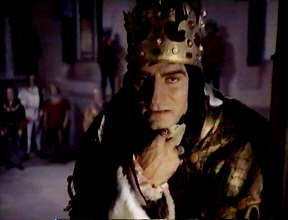
Read: the play and the Signet Introduction, and the articles by Rossiter and Kahn
CLICK to go to the class on the play.
Richard III Society Online Library
June 19: A Midsummer Night's Dream

Read: the play and the Signet Introduction, and the articles by Myers, Bamber, and Slights
CLICK to go to the class on the play.A Study Guide to A Midsummer Night's Dream
June 26: Henry IV, Part One
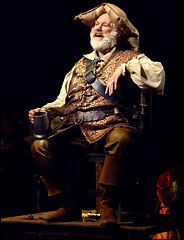
Read: the play and the Signet Introduction, and the articles by Ornstein and Goldman
CLICK to go to the class on the play."The Prudence and Kinship of Prince Hal..."
"Hal Imitates the Sun" (Part Two)
"Holy War in Henry V" (Henry V)
July 3: Twelfth Night

Read: the play and the Signet Introduction, and the articles by Bamber, Kimbrough, and Howard
Romantic comedy, with an inlay of literary romance
CLICK to go to the class on the play."Trevor Nunn's Twelfth Night": Contemporary Film and Classic British Theatre"
July 10: Hamlet

Read: the play and the Signet Introduction, and the articles by Mack, Ornstein, Heilbrun, and Belsey
CLICK to go to the class on the play.
"Shakespeare and the Public Discourse of Sovereignty: 'Reason of State' in Hamlet"
"Who Knows Who Knows Who’s There? An Epistemology of Hamlet (Or, What Happens in the Mousetrap)"
"Multiplicity of Meaning in the Last Moments of Hamlet"
Hamlet on the Ramparts (see "Films")
"'Too Much in the Black Sun': Hamlet's First Soliloquy, A Kristevan View
"An English Renaissance Understanding of the Word 'Tragedy'"
July 17: King Lear
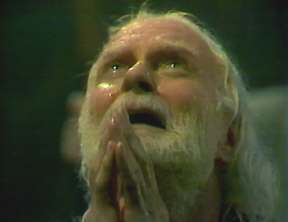
Read: the Play and the Signet Introduction, and the articles by Mack, Bamber, and Brown
CLICK to go to the class on the play.
"King Lear in its Own Time: The Difference That Death Makes"
Joyce Carol Oates, "Is This the Promised End..."
"Faires and Gods: A Socio-Religious Context for King Lear
"King Lear Beyond Reason: Love and Justice in the Family"
"Performing the Bodies of King Lear"
(see "Introductory notes on Tragedy" links)
July 24: The Winter's Tale
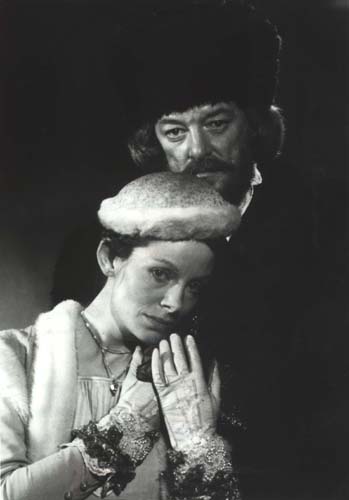
Read: the Play and the Signet Introduction, and the articles by Tillyard, Knight, Neely, and Kahn
CLICK to go to the class on the play.